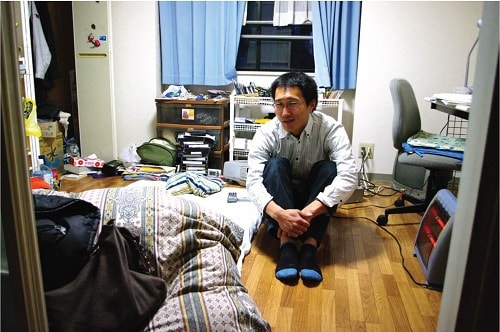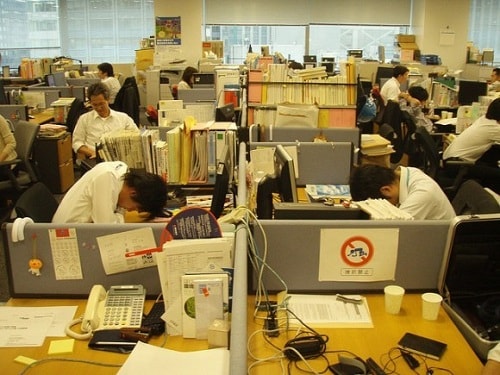Japanese youth like to stay at home
At the age of 16, Hideto Iwai shut himself in his home and refused to go out for four years.
 |
| Hikikomori is a term used to describe people who like to hide in their homes and do not want to interact with others face to face. Photo: Zen photo |
Iwai, a famous playwright, talks candidly about his homely past. He tried to express himself at age 15 and failed, so he lost faith and thought the world had collapsed. So Iwai sought refuge in his home, according to CNN.
“I just stayed in my room playing games, watching movies and sports,” Iwai recalled.
Last week, the Japanese Cabinet Office released a survey showing that there are currently more than 540,000 Japanese youths aged 15-39 who prefer to live a reclusive life.
These people are known as hikikomori, a term used by Japan's Ministry of Health, Labor and Welfare to refer to people who have not left their homes or had contact with other people for at least six months.
"We believe that this problem stems from psychological disorders, including depression and anxiety. However, cultural and social factors also play a role," said Takahiro Kato, professor of neuroscience at Kyushu University.
Support Center
When people who are not used to socializing are thrust into a high-pressure work environment, they are stunned by the sudden change, says Professor Kato.
“These people have less ability to integrate, and start to feel pressured,” he said. The number of hikikomori is higher among men than women, because Japanese society places more responsibilities on men.
“When they fail, they will collapse and develop a desire to hide themselves,” he added.
According to him, the 2016 survey by Japan's Cabinet Office was flawed, as it did not mention how many adults over 39 were hikikomori.
 |
| Sudden changes in work environment and pressure cause many people to become hikikomori. Photo: Rocketnews. |
Professor Kato is working with a hikikomori support center in Fukuoka that treats people of all ages and conditions, helping them reintegrate into society.
As a teenager, Iwai didn’t have the opportunity to attend such support centers. Instead, at the age of 20, Iwai realized that he was the only one who could solve his problems. He started to contact old friends, and started going out in the evenings to play soccer.
"I like to go out at night because there are fewer people," Iwai said.
Virtual School
For those who are too scared to leave their homes, virtual schools are an alternative. Japanese companies are setting up schools in the hope of identifying and nurturing individual talents, allowing students to develop at their own pace in a “safe haven”.
Virtual schools and support centers like the one Mr. Kato is working with have had some initial success, helping to reduce the number of hikikomori by more than 150,000 since 2010.
Professor Kato said virtual schools allow participants to remain in touch with society. He noted that for hikikomori to fully reintegrate into society, they will have to learn to face other people face to face.
“There is still a lot of stigma against hikikomori, but if we want to help them, we need to identify the reasons why they become hikikomori, and the different types of hikikomori,” he said.
According to VNE
| RELATED NEWS |
|---|
